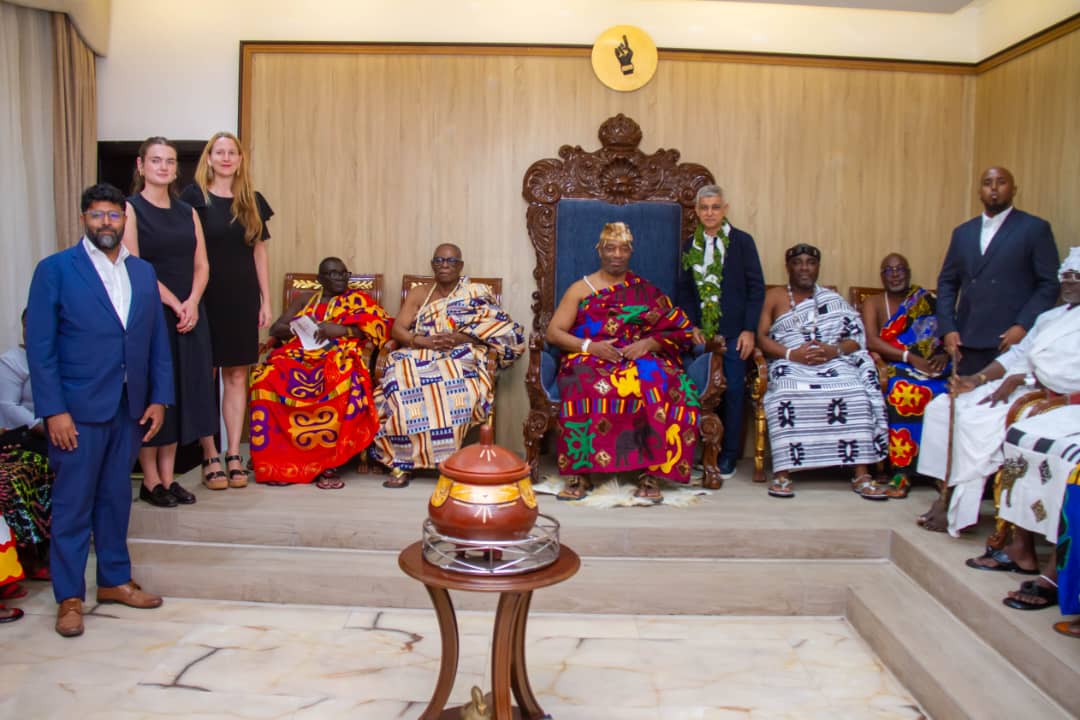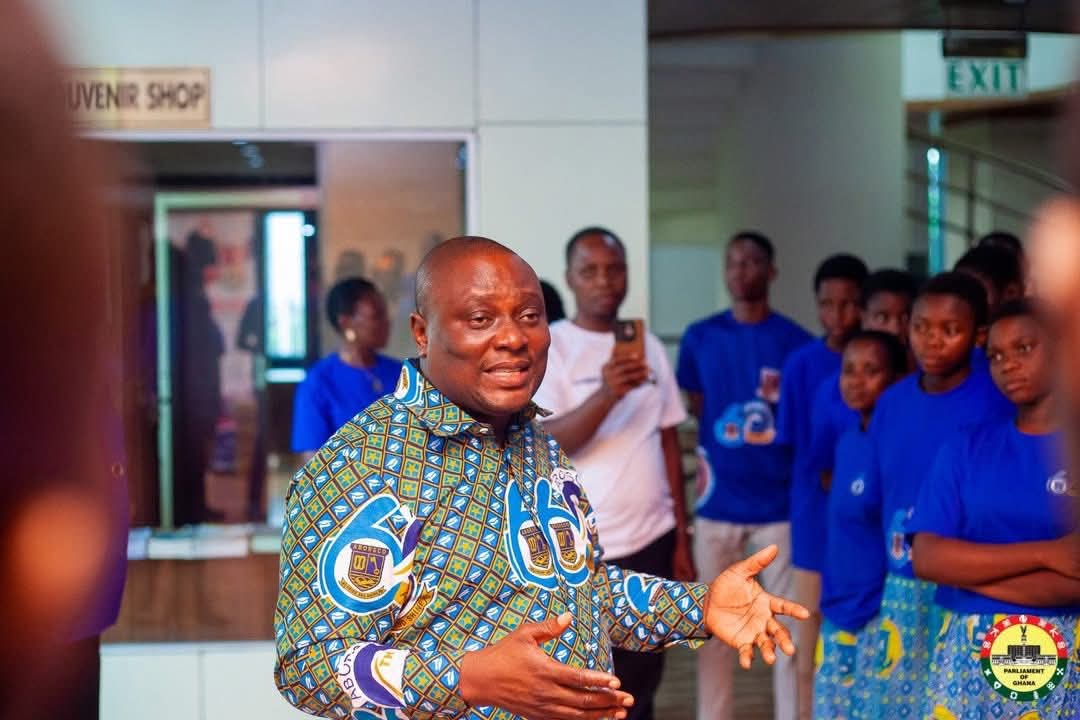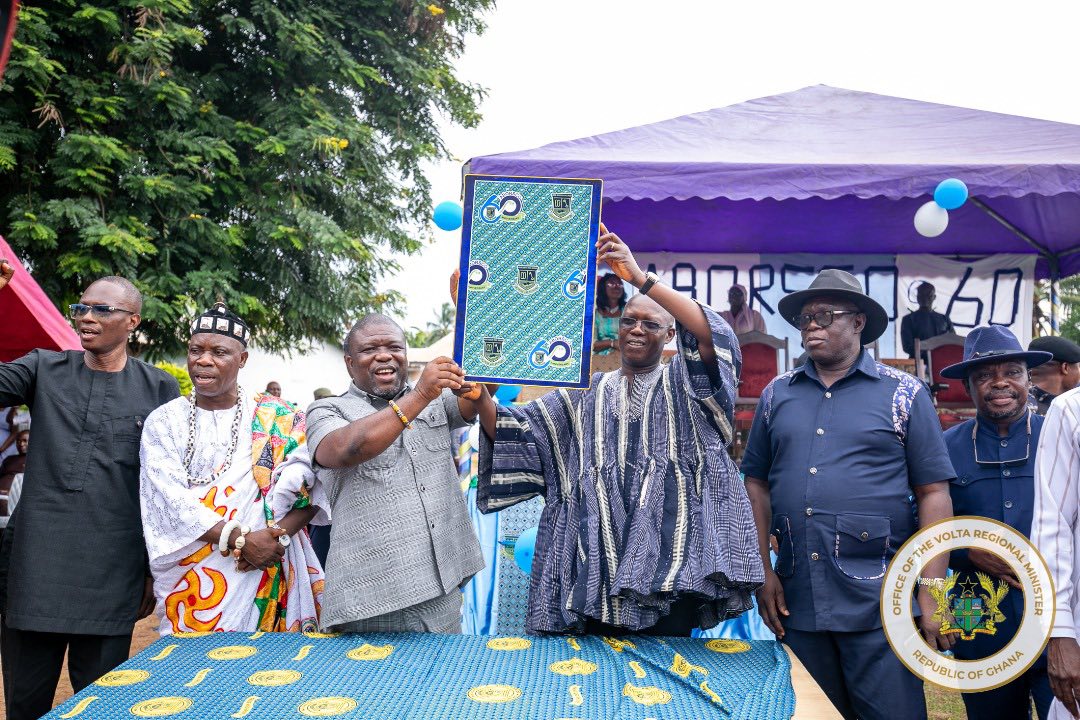The recent historic courtesy call by the Mayor of London, Sadiq Khan, on the Ga Mantse, King Tackie Teiko Tsuru II, stands as a profound testament to the burgeoning international recognition and deep-seated local reverence for the Ga stool.
Far from a mere ceremonial exchange, the widespread media coverage – both Ghanaian and British – underscored the Ga Mantse’s intellectual sophistication, his problem-solving acumen, and his commitment to innovative development initiatives that are not only transforming the Ga State but also contributing significantly to Ghana’s national progress.
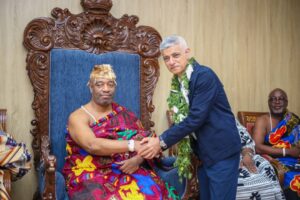
Acknowledging a New Era of Partnership
Ghanaian media, in their extensive reports, rightly emphasised the unprecedented nature of Mayor Khan’s visit, marking it as a historical milestone. The reception, steeped in rich Ga tradition, showcased the dignity and enduring influence of the Ga Mantse.
But beyond the pomp and pageantry, the reports highlighted the substance of the engagement. King Tackie Teiko Tsuru II’s articulate call for strategic partnerships between Accra and London, spanning economic transformation, cultural exchange, and urban development, resonated deeply. This wasn’t merely a request for aid, but a sophisticated articulation of mutual benefit, demonstrating a profound understanding of global dynamics and local needs. His emphasis on collaboration in technology, urban planning, cultural tourism, and youth exchange programmes points to a forward-thinking leadership focused on tangible solutions and future-proof growth.
The British media, whilst framing the visit within Mayor Khan’s broader African trade mission, nonetheless acknowledged the significance of his interaction with the Ga Mantse. Mayor Khan’s candid acknowledgement of London’s historical role in the transatlantic slave trade, a “truth” he stated needed confronting, spoke volumes about the Ga Mantse’s ability to foster honest dialogue and create an environment where difficult historical narratives can be addressed constructively. This exchange, far from being purely political, underscored the moral authority and gravitas of the Ga Mantse, capable of engaging international dignitaries on issues of profound historical and contemporary significance.
A Catalyst for Development and Progress
Indeed, King Tackie Teiko Tsuru II’s legitimacy is not merely derived from tradition, but from his proactive and visionary leadership. He is consistently seen engaging with various sectors, demonstrating a commitment to solving pressing challenges. His calls for intensified collaboration between government, industry, and academia to drive technical and vocational education, as highlighted by Accra Technical University, showcase a deep understanding of human capital development as a cornerstone for national progress.
Furthermore, his advocacy for entrepreneurial initiatives aligned with green innovation and circular economies, as reported by MyJoyOnline, reveals a keen grasp of sustainable development and environmental stewardship – vital concerns that resonate globally.
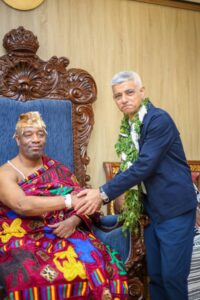
From his initiatives through the Ga Mantse Foundation, which champions innovative programmes with global impact in areas like financial empowerment, socioeconomic enrichment, and cultural awareness, to his proactive engagement with organisations like Onesta Ghana Limited to boost palm oil production, King Tackie Teiko Tsuru II is proving to be a catalyst for tangible change. His strong backing for the National Sanitation Day and calls for robust legal enforcement against sanitation challenges illustrate his commitment to public health and urban well-being. Moreover, his focus on youth empowerment, encouraging the harnessing of education to drive change, create jobs, and lead innovation, underscores a dedication to future generations.
In essence, the media coverage of the London Mayor’s visit, both local and international, paints a compelling picture of a traditional leader who is not only a custodian of culture but also a progressive statesman. King Tackie Teiko Tsuru II, the Ga Mantse, through his intellectual sophistication, problem-solving thinking, and innovative development initiatives, has unequivocally consolidated the enduring legitimacy of the Ga stool, earning the respect and admiration of dignitaries of gravitas, both at home and abroad. His leadership serves as a powerful model for how traditional institutions can remain relevant, dynamic, and instrumental in shaping a prosperous future.
Written by Raymond Ablorh

























